I've been shown Remnant 2's third (and largest) DLC The Dark Horizon, as well as its free roguelike Boss Rush mode and endgame progression system—and it's Gunfire Games' biggest flex so far
"We're going all out, we're not just finishing it."
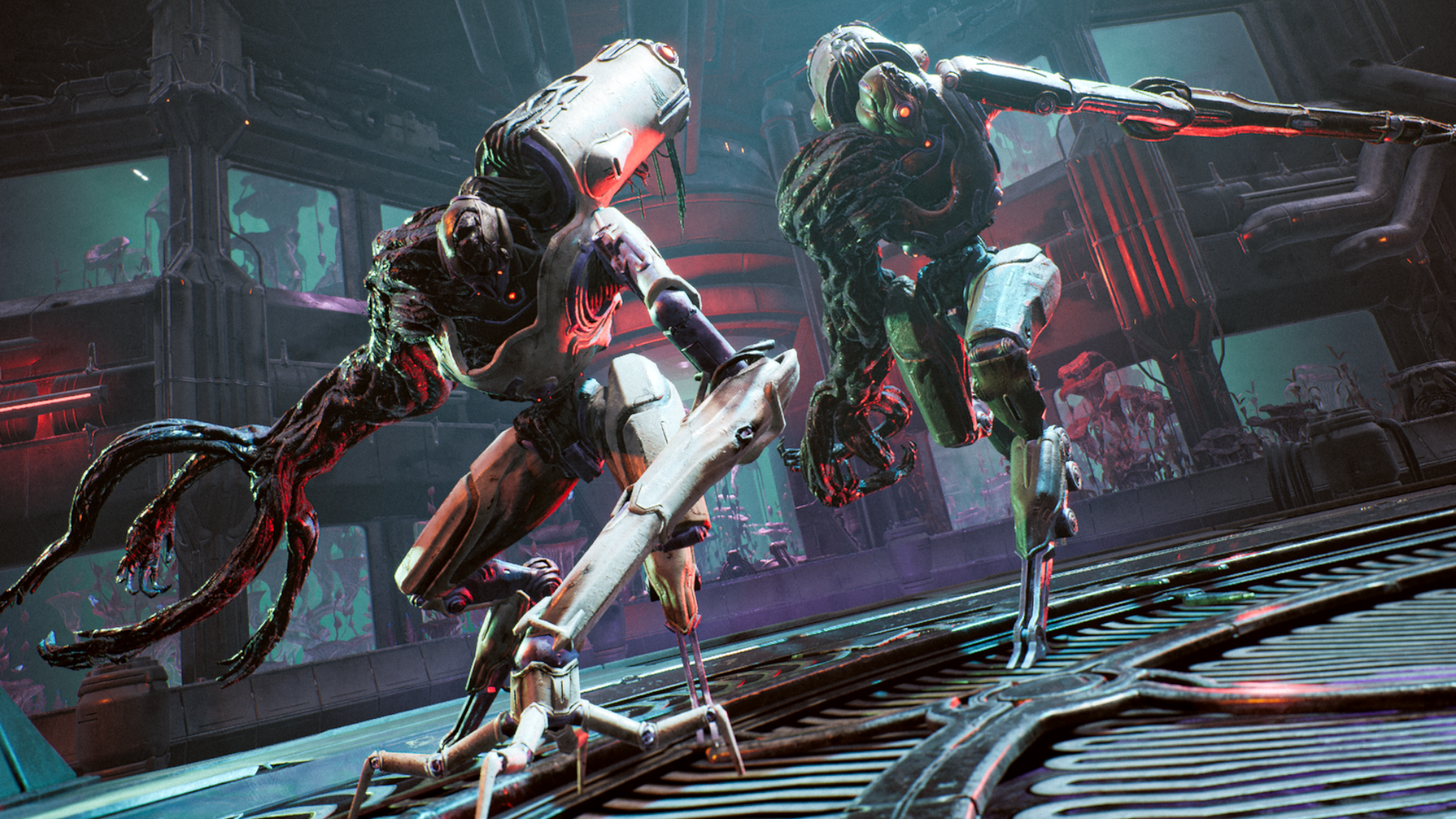
Remnant 2 was one of my favourite games from last year, in part because it knows exactly what it wants to do, does it very well, and doesn't overstay its welcome. It continued to impress with its DLC The Awakened King and The Forgotten Kingdom. Both offer an expansion to the game's core systems—new classes and items—as well as a solid 5-8 hour campaign for a very reasonable price ($10/£8.50 a pop).
The only problem, as I highlighted when it came to The Forgotten Kingdom, is that these DLCs are hard to talk about from a journalistic point of view because, well, they're more of the same—and I mean that in the most complimentary way possible. If you liked Remnant 2, you're gonna like these things because they put more Remnant 2 on your Remnant 2. If you like cookies, there are only so many ways I can say "you are getting more cookies."
I don't have that problem this time around, though. I got to sit down with principal designer Ben "Tragic" Cureton and principal level designer Cindy To, and I'm pleased to report that while The Dark Horizon does look poised to pile more gravy on your potatoes, it also feels like Gunfire Games' biggest flex in terms of content yet—ending the trio of promised DLC with both a whole new endgame progression system as well as a new roguelike game mode—which are both free, by the way.
No, really, they're just giving you this stuff
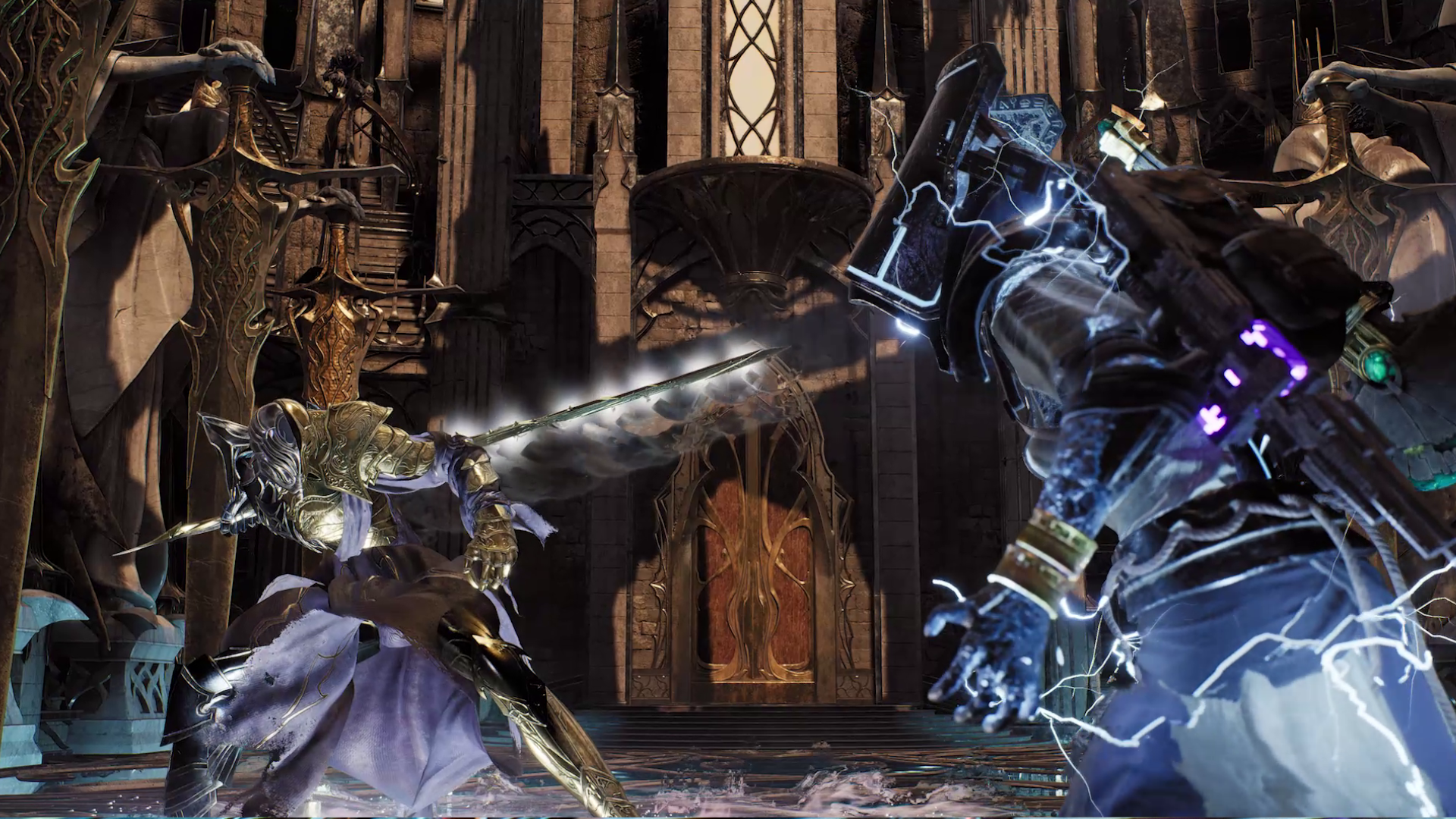
Here's what Remnant 2 freaks like myself are getting, for free, when The Dark Horizon releases September 24.
First off, there's some quality of life updates. The dozens of build-defining rings you can get now have a much-needed item filter, allowing you to sift through your bag full of bling by selecting useful terms such as damage, shield, and so on. Secondly, Relic Fragments (a system I confess I never really cared much about) has a snazzy new display and some general housekeeping.
"We got rid of about 15 of our old fragments because we felt the stats just weren't appealing," Cureton tells me. "We found that about 14-15 fragments just weren't being used, so we straight up removed them and added 20 new fragments overall." Then there's the new "Boss Rush" mode, which I'm told is a bit of a misnomer. "It's somewhat misleading—that's on us … it's actually boss rush, and survival, and horde mode all in one," Cureton confesses.
To put it simply, Boss Rush is an optional roguelike mode you can use to grind materials, XP, and items from the base game. It comes in three flavours—Triple Threat, where you fight three bosses, Trial by Fire, where you fight seven bosses (including Annihilation, the base game's crowning brawl) and The Gauntlet, which is 19 bosses. You know, in case you'd like to suffer.
The biggest gaming news, reviews and hardware deals
Keep up to date with the most important stories and the best deals, as picked by the PC Gamer team.
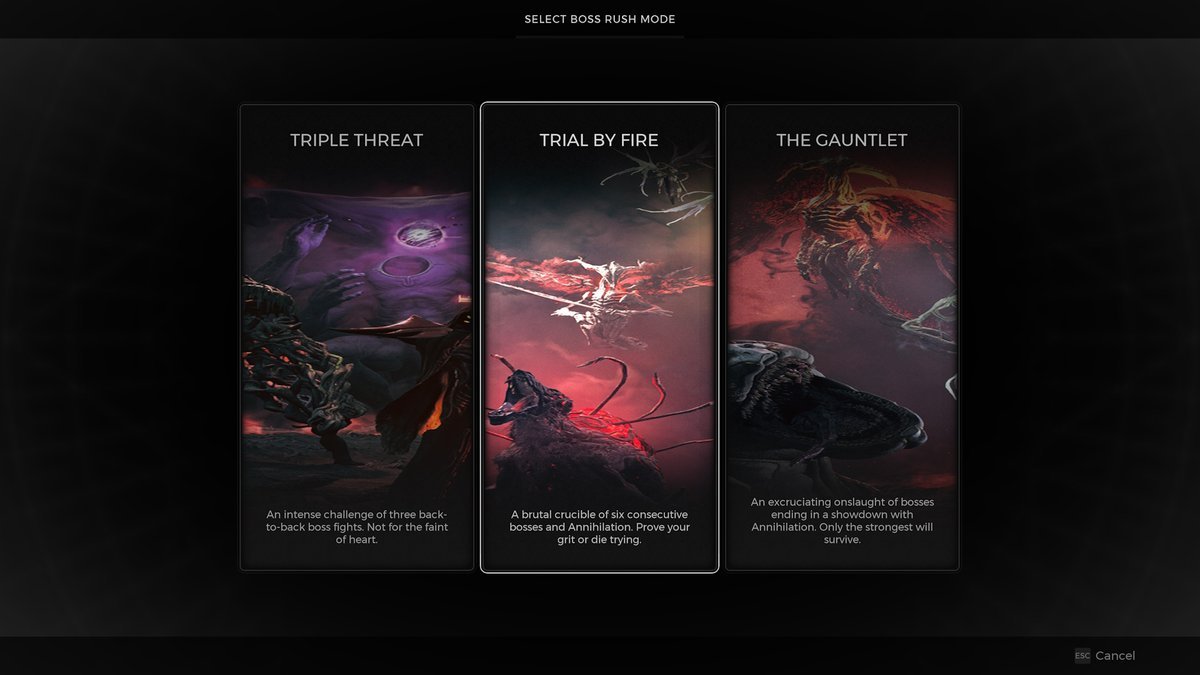
The routine is this: You drop into a dungeon, you kill enough enemies to fill a bar, you spawn a suped-up mook called an Aberration and murder it. Then, you grab your roguelike bonus from a pylon, which gives you either stat boosts or "hacks that change the functionality of the game"—like making enemies explode on death, spawning a black hole, or creating healing orbs. Then you kill your assigned boss, grab another one of these perks, and rinse or repeat until you die or win (Cureton recently released a full detailed breakdown on Twitter if you want more specifics).
"It's actually boss rush, and survival, and horde mode all in one."
Ben Cureton, Principal Designer of Remnant 2
I'm here for all of this. While Remnant 2's worlds are procedurally arranged, working through them on a loop can be a little slow and meandering. Being able to just hop in and get a concentrated fix of boss battles sounds like a great time.
This new mode props up Prisms, which serve as a brand of endgame grind. You can unlock seven possible Prisms to grind out separately, and they cap out at level 50—taking about 10 to 12 hours to do so. Whenever you level one up, you can choose from 45 possible stat boosts—which can also fuse together to give you more slots (for example, the Hulk fusion bonus gives you health and stamina).
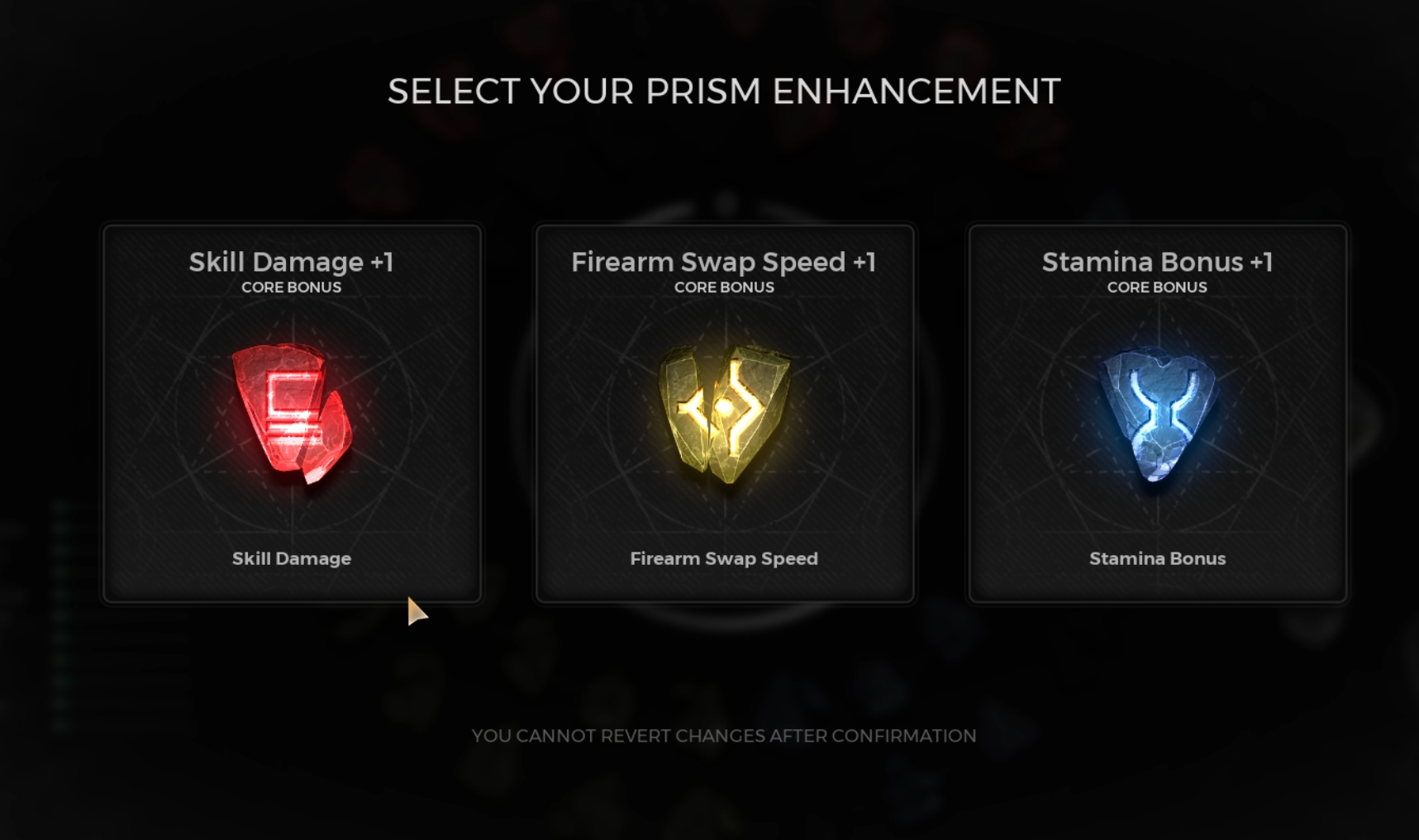
Prisms also have legendary segments, which you can add from a random selection of three to a Prism once it hits its capstone: "There are over 40 legendary segments. There's one that fills your core traits (that essentially increases your traits by 40 trait points) there's one that gives you the prime perk of both classes, which is ridiculous, right? There's one that gives you infinite Stamina … And look, some of them on paper are way better than others, but we want them all to be game changing."
Just to reiterate, this is all stuff you don't have to pay a cent for if you already own the game—it's just a tasty bonus. Given this was a preview for a DLC, though, I should probably talk about that, huh?
The Dark Horizon
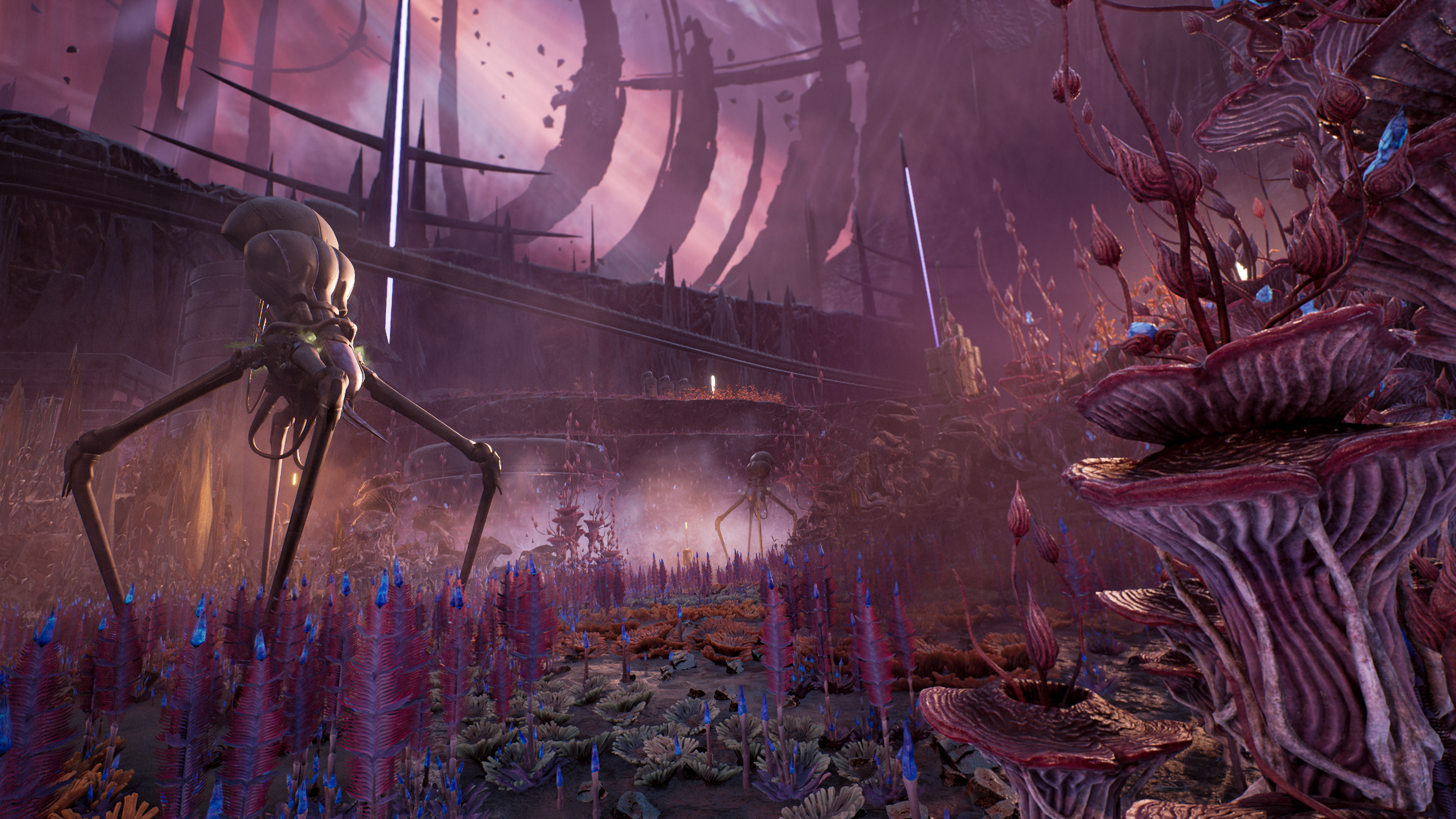
The Dark Horizon is set in an agricultural section of N'Erud and, like its sister DLCs, aims to flesh out N'Erud while offering its own hand-arranged "Adventure Mode" playthrough that lets you see all the new content you'd otherwise stumble into randomly on a standard run of the base game.
"We got some feedback, saying, 'well, N'Erud is kind of desolate and flat'—and we were like, we'll show you desolate and flat!" Cindy To exclaims. "It's a lot more colourful and vibrant." She's not lying. What I'm seeing is a sort of grim cyberpunk smorgasbord of space farms splattered with pestilence, kind of like HR Giger with some potpourri to freshen the place up.
The big feature here are the DLC's gliders, which let you hop on a techno-glider at a designated node and, well, glide over large lakes filled with black gunk and pock-marked by wind gusts to shoot you back into the air: "What's a glider without a little wind gust booster, right?"
What really strikes me as unique is just how much ground I'm seeing, and how many little nooks and crannies To and Cureton could've squirrelled away their secrets in. Remnant 2's traditionally plonked you in sprawling, Diablo-style hallways—so this is a welcome change of pace.
There's also a new Archetype, the Warden, which has a drone equipped with a trio of passive effects it can swap between—Healing, Combat, and Shielding. Its signature weapon, the Repair Tool, is similarly teamwork-focused, allowing players to shoot enemies to death or shoot allies to, uh, life. You can also send your drone to chaperone your fellow players, transferring its buffs to them.
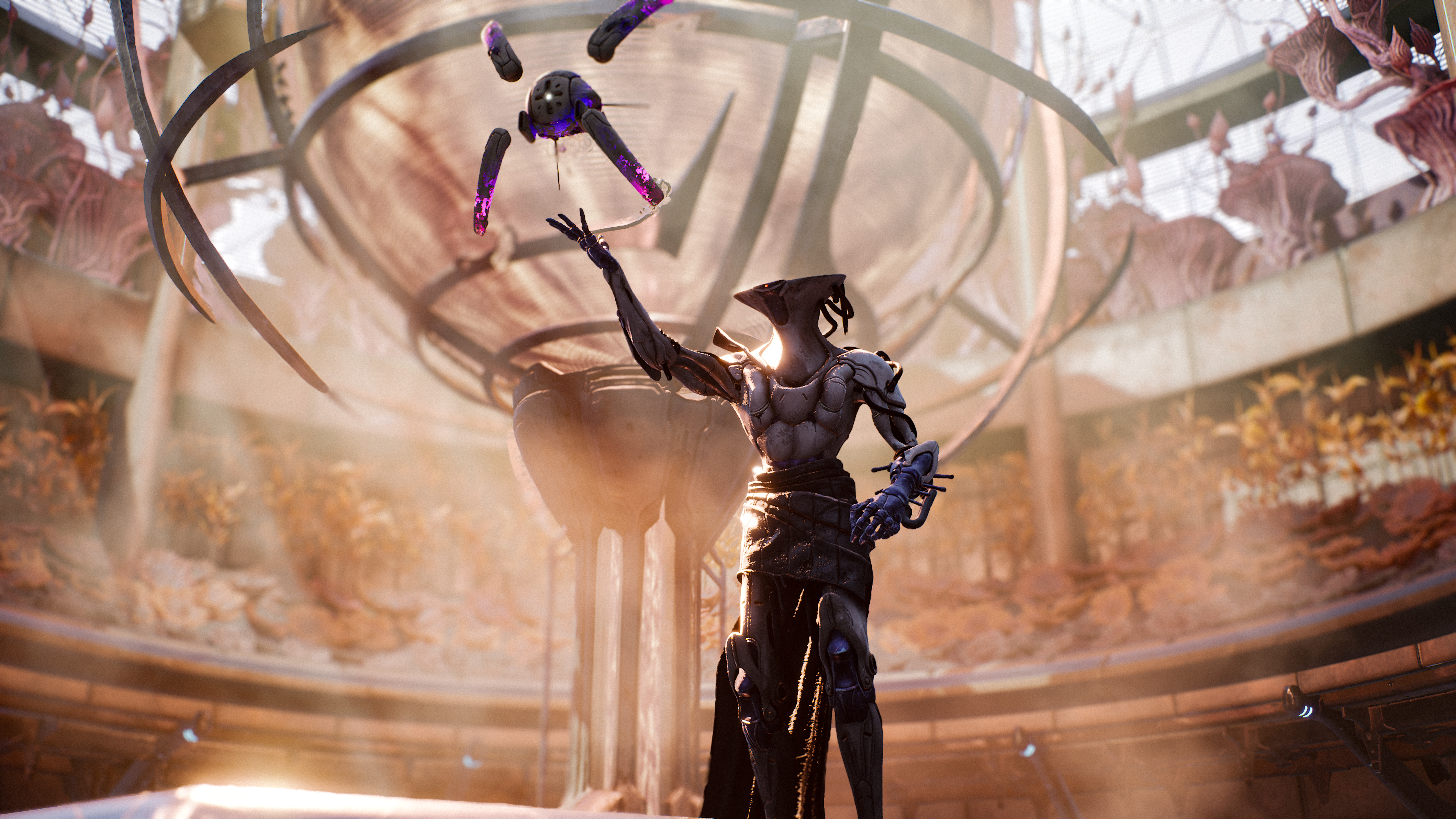
Naturally, there's new rings and weapons to bolster this all up—including one I've been asked not to talk about too much, but which I can confirm basically turns you into Space Goku. Finally, I can live out my very specific fantasies.
Ultimately, I'm downright impressed. If The Dark Horizon was simply on par with the game's other DLCs, I'd say Gunfire Games has given Remnant 2 a very good showing in terms of post-launch support—three solid expansions at a reasonable price point gets my kudos under any circumstances. But with the new (again, free) added game mode and progression systems, just because? I feel like the studio's just flexing at this point.
"We're really excited for people to play it and get a really good reception, hopefully, so that we can continue to learn and make better things right for ourselves and for the players," says To, while Cureton chimes in: "We're going all out, we're not just finishing it … We wanna get as much stuff in for the players—and I know this sounds very PR-ish—but yeah, this is for the players … We're going to give them more stuff than they ask for."
I'd agree under most circumstances that "for the players" sounds PR-ish but, again, Remnant 2's earned a lack of scepticism from yours truly. The Dark Horizon releases alongside the game's free update on September 24.

Harvey's history with games started when he first begged his parents for a World of Warcraft subscription aged 12, though he's since been cursed with Final Fantasy 14-brain and a huge crush on G'raha Tia. He made his start as a freelancer, writing for websites like Techradar, The Escapist, Dicebreaker, The Gamer, Into the Spine—and of course, PC Gamer. He'll sink his teeth into anything that looks interesting, though he has a soft spot for RPGs, soulslikes, roguelikes, deckbuilders, MMOs, and weird indie titles. He also plays a shelf load of TTRPGs in his offline time. Don't ask him what his favourite system is, he has too many.

